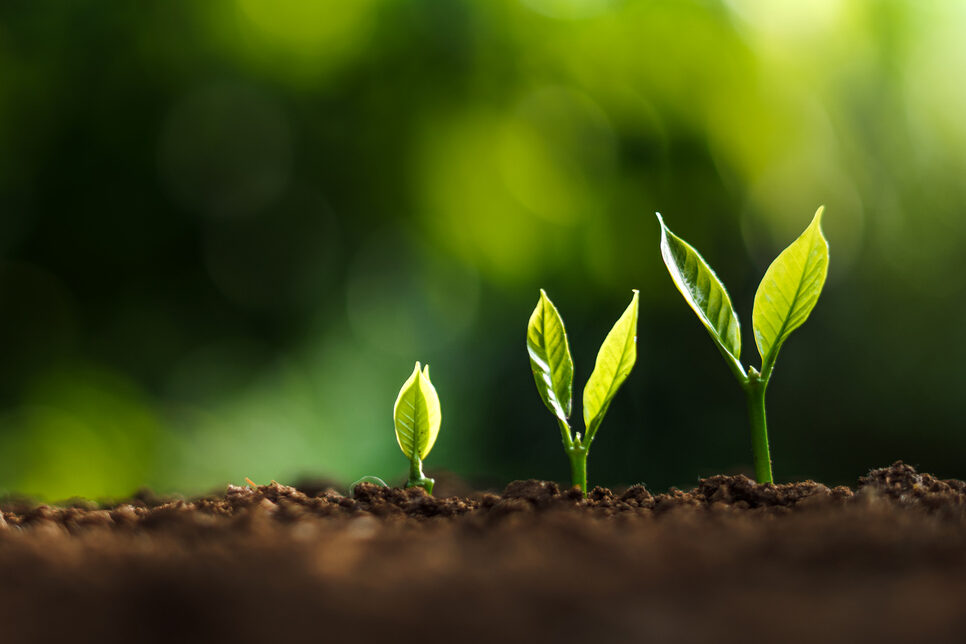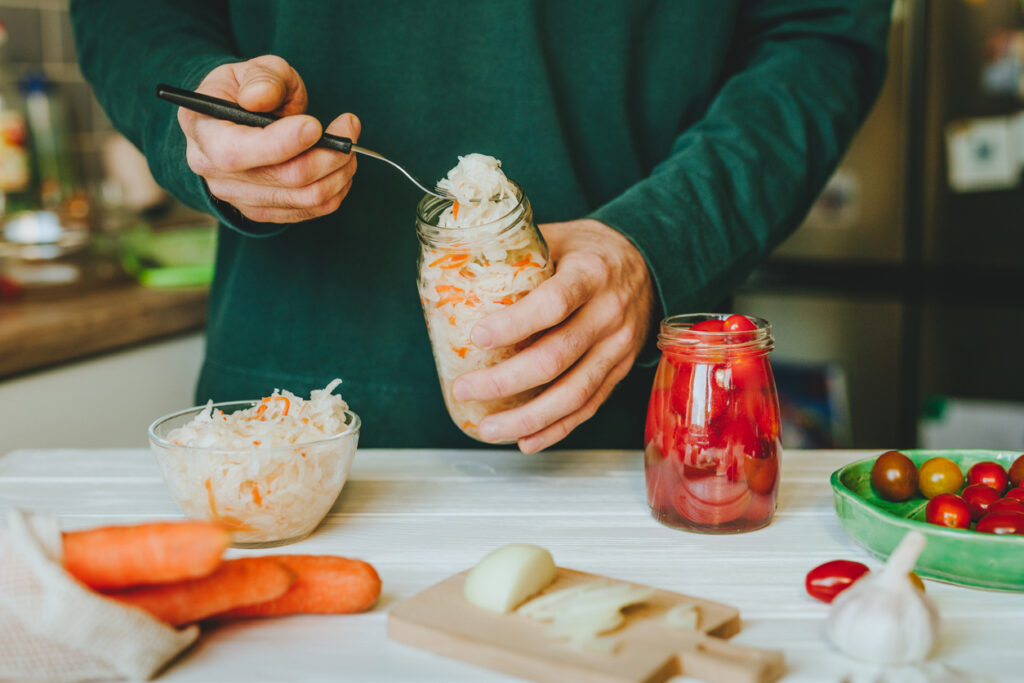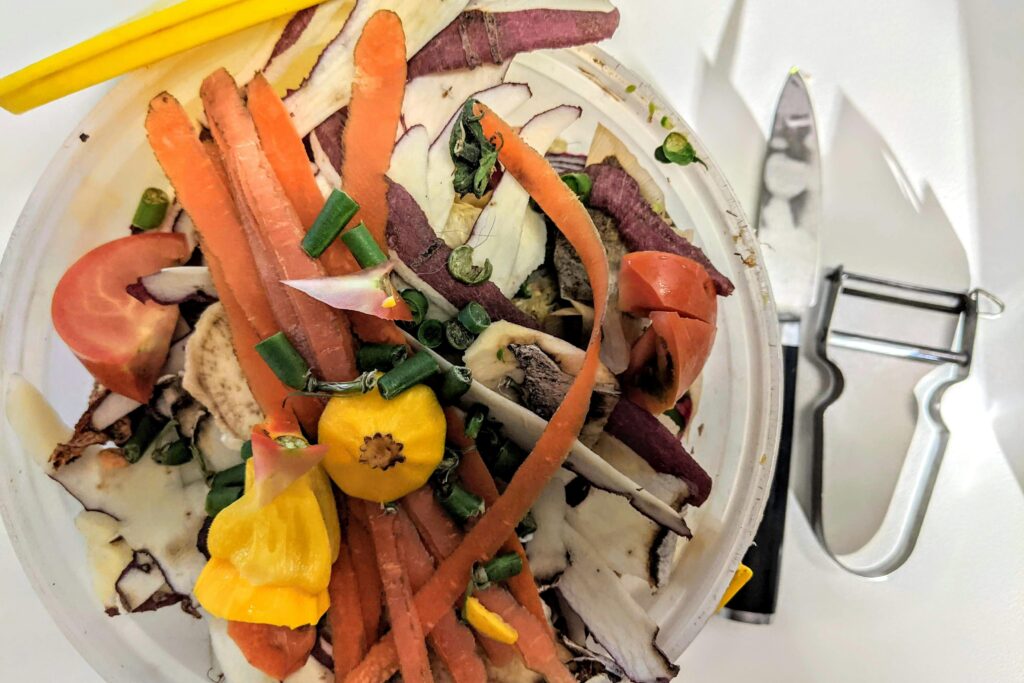1. The Soil Your Food Grows In Feeds Your Gut Too

Healthy soil isn’t just good for crops. It’s teeming with microbes that help produce nutrient-rich food, which feeds the good bacteria in your gut. But industrial farming methods like heavy pesticide use and monocropping degrade soil biodiversity. That results in fewer nutrients in your food, which can directly affect your microbiome and overall health.
The healthier the soil, the healthier the produce and your digestive system. Regenerative agriculture is gaining attention for this very reason. It promotes natural soil cycles that boost microbial life and nutrient density. When your food comes from soil that’s alive and thriving, your gut gets the complex fibers and minerals it needs to function well. Supporting sustainable farming practices is a small shift with powerful ripple effects on both your gut health and the planet’s future.
2. Antibiotic Overuse in Agriculture Harms Gut Balance
Factory farms routinely give animals antibiotics to prevent disease in crowded conditions. These antibiotics seep into our food and water, contributing to drug resistance and disrupting the human gut microbiome. Over time, this can reduce beneficial bacteria and lead to inflammation and digestive problems.
Choosing antibiotic-free or plant-based options supports your gut and discourages unsustainable farming practices that damage both human health and the environment. What you eat helps determine which food systems you fund. By opting for ethically raised meat or legumes instead of industrial meat, you protect your microbiome and reduce demand for harmful agricultural practices. This is more than just a personal health choice, it’s a vote for better food standards across the board.
3. Climate Change Affects the Nutrient Quality of Food
As climate change alters temperature and rainfall, crops face more stress and lose essential nutrients like protein, iron, and zinc. This affects not just food taste but your gut health. Poor nutrition weakens your microbiome, making digestion and immunity less effective.
Growing concerns about food security highlight how environmental shifts directly impact what’s on your plate and how well your gut bacteria can thrive. Crops grown in compromised conditions often have less fiber and fewer polyphenols, which your gut needs to flourish. Eating locally, seasonally, and supporting climate-smart agriculture ensures you’re feeding both your body and the environment with intention and care.
4. Ultra-Processed Foods Harm Both Gut and Planet
Ultra-processed foods are low in fiber and high in additives that weaken your gut’s natural defenses. They reduce microbial diversity and promote inflammation. These convenience foods may be quick fixes, but they rob your microbiome of the complexity it needs to thrive and heal.
On a planetary scale, these foods depend on energy-intensive farming, heavy packaging, and long transport chains. This leads to environmental damage, including pollution and greenhouse gas emissions. Choosing whole foods supports gut-friendly microbes and reduces your personal contribution to environmental degradation. A simple meal switch can send a powerful message.
5. Plant-Based Diets Are Gut- and Eco-Friendly
Plant-based foods are packed with fiber, which acts as a prebiotic to feed good bacteria in your gut. A diet rich in fruits, vegetables, legumes, and whole grains improves digestion, reduces inflammation, and supports overall gut balance. These foods provide the variety your microbiome needs to stay strong and resilient.
Environmentally, eating fewer animal products lowers greenhouse gas emissions and preserves water and land resources. Even small shifts in diet can lead to meaningful changes for your gut and the planet. Adding one plant-based meal a day isn’t just good for you, it’s a step toward sustainability that scales.
6. Fermented Foods Heal Your Gut and Reduce Waste

Fermented foods like yogurt, sauerkraut, and kimchi are full of probiotics that enhance gut health. These foods help balance your microbiome, support digestion, and strengthen your immune system. They’re also easy to make at home using simple ingredients, which reduces reliance on processed foods. By embracing fermented foods, you improve your gut flora while minimizing packaging waste and transportation-related emissions from store-bought alternatives.
Fermenting your own foods can cut down on grocery bills and eliminate single-use plastic. It also connects you with ancient preservation traditions that are eco-friendly by design. From kefir to miso, there are many gut-nourishing options to explore. These living foods bridge the gap between wellness and sustainability, showing how a single lifestyle tweak can nourish your body and support the planet. It’s one of the simplest, most delicious ways to make a difference.
7. Pesticides in Food Disrupt Gut Bacteria and Harm Ecosystems
Many fruits and vegetables are sprayed with pesticides that don’t just kill bugs. They may harm your gut microbes too. These chemicals can interfere with the natural balance in your microbiome, causing digestive issues and inflammation. Your gut thrives on clean, chemical-free food, but conventional farming doesn’t always make that possible.
Pesticides also run off into soil and water, damaging local wildlife and reducing pollinator populations. By choosing organic when you can, you support sustainable farming practices that are safer for both your gut and the environment. It’s not about being perfect, it’s about being mindful. Even switching a few produce staples to organic can make a real difference to your gut bacteria and the ecosystems around you.
8. Food Miles and Freshness Matter to Your Gut
The farther your food travels, the more nutrients it can lose before reaching your plate. Transport time affects freshness, which matters for feeding your gut microbiome. Fresh fruits and vegetables have more vitamins and fiber that help beneficial bacteria thrive. Shorter travel time also means less risk of spoilage, bruising, or chemical preservation treatments.
Supporting local farmers and choosing seasonal produce means less transportation pollution and a more gut-friendly diet. It keeps your microbiome diverse and vibrant while reducing your carbon footprint. Whether it’s a weekend farmer’s market or a neighborhood co-op, buying close to home helps your health and the planet in one go.
9. Packaging Waste from Convenience Foods Hurts the Planet
Convenient snacks and drinks are often wrapped in layers of plastic that harm the planet long after you’ve eaten. These single-use packages pile up in landfills and oceans, contributing to pollution. The foods inside are usually low in fiber and high in sugar, which harms your gut microbiome by feeding the wrong types of bacteria.
Choosing unpackaged or minimally packaged whole foods reduces environmental damage and improves your digestive health over time. Bulk bins, reusable containers, and fresh produce sections are great places to start. It’s a change that doesn’t just reduce your waste, it builds a healthier relationship between your diet, your gut, and the earth.
10. Water Quality Affects Gut Health and Ecosystems
Contaminated water can carry pathogens or chemicals that disrupt your gut flora and lead to illness. Poor agricultural practices often pollute local waterways with fertilizer and pesticide runoff. These same pollutants impact drinking water and aquatic life. Clean water supports both biodiversity and healthy digestion by protecting the integrity of the microbial ecosystems inside and outside your body.
By supporting eco-friendly farming and conservation efforts, you’re also protecting one of the most essential elements for gut and planetary health. Clean water starts with conscious choices. From filters to community water initiatives, there are simple ways to prioritize clean sources. What you drink matters, not just for hydration but for long-term gut resilience.
11. Diversity in Your Diet Supports Microbial and Planetary Diversity
Eating a wide variety of plant foods feeds different species of gut bacteria, which leads to a more balanced microbiome. Diversity in your gut equals better immunity, digestion, and mood. Whole grains, legumes, vegetables, and nuts all play unique roles in keeping your internal ecosystem running smoothly.
The same idea applies to the planet. Agricultural biodiversity helps ecosystems stay strong and resilient. When you eat many colors and types of food, you support local farmers, reduce monocultures, and foster a healthier environment. It’s a delicious way to strengthen your gut and sow sustainability from your plate to the planet.
12. Industrial Meat Production Pollutes the Earth and Your Gut
Large-scale meat production releases methane, pollutes water, and accelerates deforestation. These practices harm ecosystems and contribute to climate change. At the same time, diets high in red and processed meats have been linked to imbalanced gut bacteria, higher inflammation, and increased long-term disease risk.
Cutting back on meat, even a few times a week, helps restore your gut balance and reduces the environmental burden. Opting for legumes, tofu, or mushrooms can offer variety without sacrificing satisfaction. It’s not about going vegetarian overnight. It’s about finding a rhythm that respects your health and the world around you.
13. Sustainable Seafood Supports Gut Health and Ocean Life
Fish is a good source of omega-3s and nutrients that benefit gut health, but not all seafood is created equal. Overfishing and unsustainable practices damage marine ecosystems and reduce fish populations. Choosing sustainable seafood supports healthy oceans and responsible harvesting practices.
It also ensures you’re getting fish free from excessive mercury or microplastics that could harm your health. When you eat mindfully sourced fish, you’re helping your gut and the sea. Look for certifications like MSC or ask your local fishmonger for sustainably caught options. Your gut and the ocean will both benefit.
14. Seasonal Eating Helps Your Gut and Cuts Carbon Emissions
Eating in season means you get fruits and vegetables when they’re freshest and most nutrient-dense. These foods better support your gut bacteria because they retain more fiber and antioxidants. Your microbiome needs variety and freshness to function at its best, and seasonal produce delivers exactly that.
Seasonal eating also reduces the need for energy-intensive storage and transport, cutting your carbon footprint. It encourages local farming and helps reduce emissions while giving your microbiome the variety and freshness it craves throughout the year. Following the seasons can be one of the tastiest ways to support your gut and the planet.
15. Composting Your Scraps Closes the Gut–Planet Loop

Composting food waste turns kitchen scraps into rich soil that feeds future plants. That soil supports nutrient-dense produce, which nourishes your gut bacteria. It’s a full-circle moment where mindful eating and waste habits benefit both your health and the planet. Less food in landfills means less methane gas released into the atmosphere.
Composting also reduces household waste and gives back to the earth in a powerful, regenerative way. Whether it’s a backyard bin or a local collection service, composting keeps valuable nutrients cycling through the food chain. It’s a simple step that links your gut health to global sustainability.
